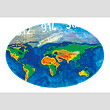| Published: Date: Updated: Author: |
The Bahamas Investor Magazine June 23, 2009 June 23, 2009 Andrew Ridall |
After two decades of stable economic growth, abundant liquidity and rising asset values, the tide of prosperity has finally receded: last year, global markets had their worst annual returns since the 1930s. This time the tempest hasn’t been confined to one sector or region or asset class, much as it was in previous crises. Now it is truly global, impacting nearly every investable asset class in all markets around the world.
But, a few readily available facts and the application of a little common sense, may help distill a seemingly complex situation, and lend perspective to that burning question: what should I do now?
Global stock valuations reached their lowest levels in a generation at a recent multiple of 9.5x earnings. Fact: stocks are cheap by historical standards.
Spreads in investment grade and high-yield bond markets were recently the greatest in a generation. Fact: corporate debt is cheap by historical standards.
The average economic recession in the US since the Second World War has lasted 11 months, and the longest (1981-1982) lasted 16 months; the current recession is now 16 months old. Fact: relative to historical downturns, the current recession is getting long in the tooth.
Global debt and equity markets have never gone to zero. Individual securities have gone to zero, individual debtors have defaulted, but on the whole globally diversified indexes have never failed, but have always gone on to set new highs. Fact: empirical evidence suggests markets always recover.
Treasuries and recovery
Now, consider this: the US government has lent, spent, or guaranteed over $12.8 trillion so far, nearly the value of everything produced in America last year, to shore up the global financial system. Dozens of other countries around the world have followed suit with their own interventions.
Meanwhile, as America increases its spending, China and Japan, its two largest creditors, have significantly curtailed their Treasury purchases. To fill the void, the Federal Reserve has now stepped in, essentially printing money to finance its ballooning obligations and artificially depressing Treasury yields.
In fact, yields are so low that purchasers of short-dated Treasuries have recently been paying for the “privilege” of lending to the US government. This offers another relevant fact: Treasuries are expensive by historical standards. As Jim Grant, publisher of Grant’s Interest Rate Observer, recently suggested, Treasuries now offer investors “return-free risk.”
To summarize, we can offer the following facts: stocks are cheap, corporate debt is cheap, Treasuries are dear, an economic upturn is overdue and markets always recover. This may not mean much to traders or market-timers, but it should come as welcome news to long-term, value-oriented investors. It is up to the reader to decide what, if any, course of action to take based on these truths.
The opinions expressed in this article are those of the author and not necessarily those of The Bahamas Investor.
G20 key points
Leaders of the Group of Twenty met in London on April 2, 2009 to tackle the global economic situation, pledging to:
• increase the resources available to the IMF through immediate financing from members of $250 billion, subsequently incorporated into an expanded and more flexible New Arrangements to Borrow, increased by up to $500 billion, and to consider market borrowing if necessary
• support a substantial increase in lending of at least $100 billion by the Multilateral Development Banks (MDBs), including to low income countries, and ensure that all MDBs have the appropriate capital.
• commit to implementing the package of IMF quota and voice reforms agreed in April 2008 and call on the IMF to complete the next review of quotas by January 2011
• establish a new Financial Stability Board (FSB) with a strengthened mandate, as a successor to the Financial Stability Forum (FSF), including all G20 countries, FSF members, Spain, and the European Commission
• use additional resources from agreed sales of IMF gold, together with surplus income, to provide $6 billion additional concessional and flexible finance for the poorest countries over the next two to three years
Compiled by Alex Black
Bio
Andrew Ridall
Andrew Ridall is an international business writer living in Nassau, Bahamas. He graduated from Middlebury College, Vermont, in 2005 with a degree in English, and spent two years with Merrill Lynch in San Francisco before moving to New Providence in August 2007.









